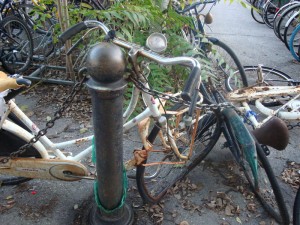Travel has a way of slowing you down, says author and traveler Rolf Potts, of waking you up, of pulling you up out of your daily routines and seeing life in a new way. This new way of looking at the world need not end on your return home. It can be one of the benefits of planning, before the trip, to write about experiences on the road. I love this notion of living each day with the anticipation and exhilaration of seeing, hearing and smelling a place for the first time – even if I’m visiting my living room.
But what is travel writing – today? A look at styles, purpose and tradition is worth a moment of consideration as we gather pen, paper, journal and IPad before setting out on a journey. There are writers who create “service” articles and guides – those helpful hints about what to do, for example, if you come upon a shark while swimming off the coast of Australia, or how to find the oldest church among the thirteen in San Miguel de Allende, or the best restaurant in Los Gatos, CA, (where they claim to have the best restaurant in the US) or the site of a Civil War battle in New Jersey (did they battle that far North?).
And then there are those writers who take us on their journey. They might be searching for ancestral roots in Poland or describing how they managed to know how to behave at a luncheon with members of the Communist Party in China. The common thread among travel writers dedicated to a sense of inquiry, discovery and curiosity is the demonstration of a genuine human connection with people of a different origins, culture and language.
In the long ago past, travelers went to scary, obscure places that were virgin territories, protected from the outside world; places that no longer exist. Today, the travel writer as geographical explorer is outdated. People have been everywhere there is to go and revealed every iceberg and lost tribe to the rest of humanity. Now, the quest of the traveler who wants to write about his or her personal adventures is different. It is writing about the writer’s journey; the emotional weight and intellectual insights of the traveler observing and experiencing a place, even a well-trampled one.
Unless it is an assignment for a travel guide or magazine requiring specific details about hotel accoutrements in a popular tourist destination, the goal of inquiring travel writers today is to see a place with fresh eyes and describe a unique experience. Alain de Botton says in The Art of Travel, “Before travel books, a traveler could arrive at a destination and be free to think that everything, or perhaps nothing, might be interesting.” Today, guidebooks lay down distinctions by giving one, two or three stars. Your ultimate pleasure has been decided for you. You can know before you go – unless the goal something else. Perhaps to seek out transforming discoveries; to have experiences that connect us to other humans in ways that we can discover new aspects of ourselves.
For those who are traveling to relax and escape bad weather or difficult work or family situations, choosing the perfect isolated beach with a calm tranquil sea might be the ultimate destination with nothing to write home about except to say, “life is good,” but others might engage in a different way with a far- off destination and find a different story, a new twist to a time-less scenario.
Perhaps the real question is – what is traveling? Are you traveling to connect with the world or to escape your present existence? Both are valid reasons to go somewhere and both offer opportunities for writing. Lavinia Spalding, editor of Best Women’s Travel Writing and author of Writing Away: A Creative Guide to Awakening the Journal-Writing Traveler, suggests keeping a journal –even posing questions to yourself before leaving – and gathering memories along the way by recording observations using all five senses to see what can be created on the page – before, during and after the trip. She believes that this kind of preparation may enhance the experience even if you don’t know what to expect. She also suggests taking art supplies, plastic baggies, glue and tape so that you can jog your sensory memory later with collected objects, drawings, doodles and tactile memories.
Dedicating full attention to travel teaches us that how we spend time is as important as how we spend money. Traveling (and writing about it) has forced me again and again to slow down and pay attention, to notice, to remember, to be more in the moment; important behaviors for life on the road – and at home.
If you’re curious about the myriad aspects and benefits of travel writing, join me for a workshop with Rolf Potts and Lavinia Spalding on April 26 – 27, 2013. For more information write to: [email protected] or visit www.Facebook.com/writingatriverlight.



